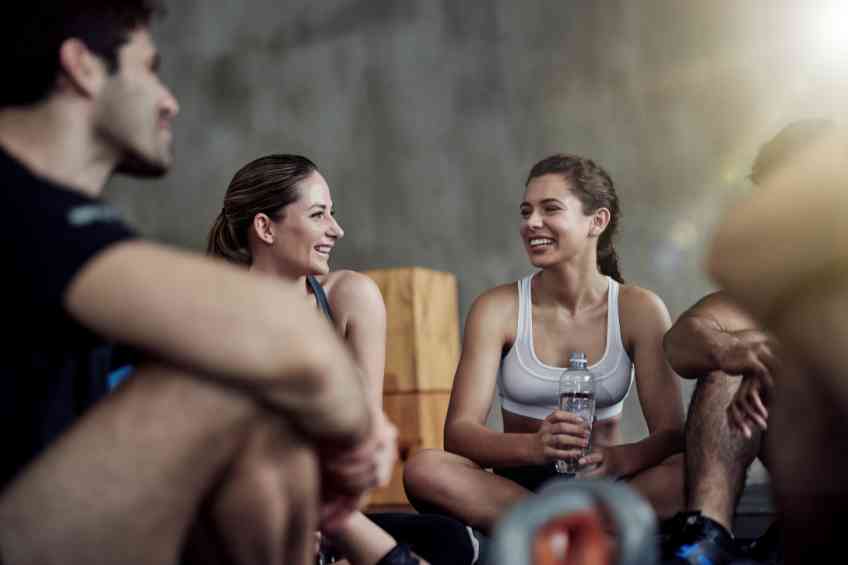By John Hand –
The workout is complete, the body is tired and nothing would feel better than to sink into a luscious couch. Bad idea. As tempting as it would be to go straight from exercising to relaxing, specific post-workout practices are needed to enhance recovery and improve overall results. It is also just as important to avoid certain things right after the gym.
The first and one of the most important and perhaps obvious steps is to hydrate properly. After an intense workout, the body’s fluids need to be replenished. Thankfully, there are lots of ways to accomplish this. Drinking water, coconut water, green tea or even chocolate milk are all good options because they will help muscles recover, relieving soreness.
Unfortunately, not all liquids are created equal. Some may even work to dehydrate a person, which is a particularly troubling prospect after a workout. It is essential to avoid a cool beer, glass of wine, a martini or other alcohol immediately after exercising. Sugary drinks such as soda or certain sports beverages are also a no-no.
Another essential post-workout practice is stretching. It is a boon for muscle recovery. Admittedly, stretching is usually seen as a must-do before working out. However, stretching after exercising is necessary to elongate muscles, relieve tension and improve overall flexibility. It also provides the body with a chance to cool down, which brings down heart rates and signals the body that the workout has been completed.
Okay, after hydrating and stretching it is easy to assume the body can be rewarded with a slice of pizza and maybe plopping down to watch a college basketball game or the latest episode of Outlander. Wrong again.
There is no benefit or wisdom in gobbling down foods that are high in fat or sugar post workout no matter how many calories were burned while exercising. In fact, Musclemagician.com, a site dedicated to fitness and bodybuilding, argues it is extremely important to eat the right foods and avoid the wrong ones after a workout. The site stresses the need to skip foods that are high in fat and sugar and instead focus on meals with high carbs and protein.
In specific terms, this means giving the likes of pizza, burgers and fries a pass and instead consuming potatoes, eggs and yogurt. Fast-acting carbohydrates are a benefit because they will quickly go to the bloodstream and elevate insulin levels, getting nutrients throughout the body. Other research notes that protein, in turn, provides muscles with the amino acids that are required for their repair and rebuilding.
One last bit of information on post-workout munching: meal timing is important. A healthy dish or snack should be consumed within forty-five minutes of completing the workout to kick-start the recovery process.
While perhaps not accessible for everyone, polar plunges have become increasingly popular after-exercise routines. These ice baths are valued for workout recovery. This chilly practice involves getting into a tub of water that is at least 50-59 degrees Fahrenheit and staying there for at least 10-15 minutes.
“Ice baths help people move and feel better, which can help them recover, ”Mike Reinold, the former head trainer for the Boston Red Sox told Men’s Health magazine.
These near-frigid dips reduce inflammation because the cold water constricts and opens blood vessels, allowing blood to obtain nutrients, oxygen and flow throughout the body. A simple cold shower is another, more accessible option to get some of the benefits of an ice bath. In addition, these showers will improve sleep, which is the ultimate form of recovery.
If a cold bath after a workout seems too tortuous, a sauna is a warmer option to improve blood flow and relief to muscles, according to Healthline.com. The one drawback to saunas, however, is that they do promote dehydration. This makes it important to continue drinking water or another hydrating liquid before starting, while also monitoring how the body is feeling when in the sauna.
Yes, eventually that soft couch will be embraced, but it is best to embrace a healthy post-workout routine first.












